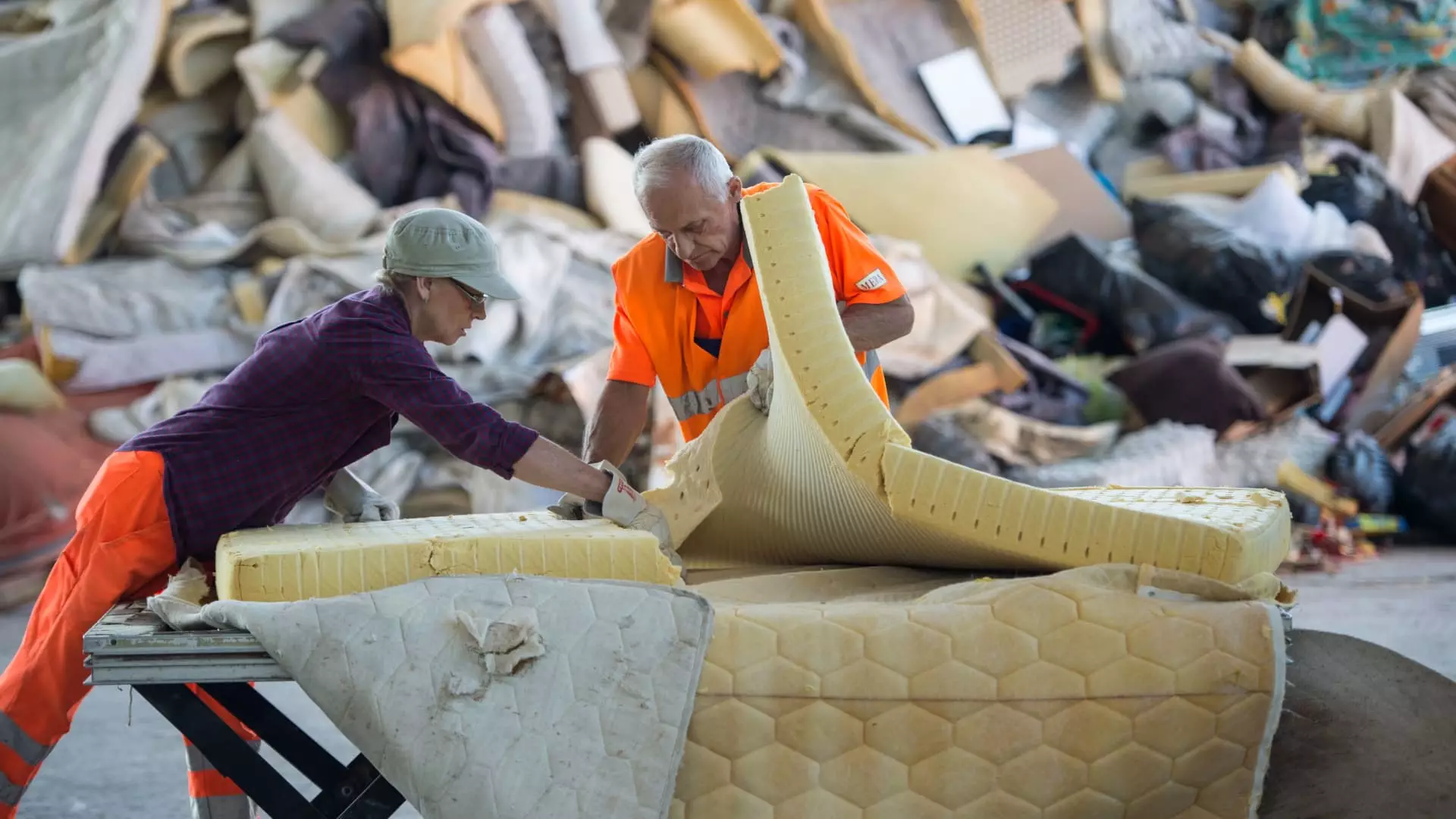In recent years, the mattress industry has undergone a remarkable transformation, undertaking substantial measures to lessen its environmental footprint. Over four states—California, Connecticut, Oregon, and Rhode Island—have pioneered the implementation of recycling fees attached to mattress and box spring purchases. Consumers are now contributing a small additional charge—ranging from $16 to $23—intended to fund state-sponsored recycling initiatives that aim to divert millions of discarded mattresses from overflowing landfills. This movement reflects a larger trend in policy-making that seeks to promote a circular economy, addressing the environmental challenges posed by the excessive waste generated from everyday products.
The Scope of Mattress Waste
Each year, Americans dispose of an estimated 15 to 20 million mattresses, which translates to approximately 50,000 units each day. This staggering number poses significant concerns for waste management systems, with traditional disposal methods clearly inadequate to cope with such volumes. Fortunately, the Mattress Recycling Council (MRC), a nonprofit established by industry stakeholders, has stepped in to mitigate this crisis. Statistics show that over 75% of a mattress is potentially recyclable, comprising valuable materials such as wood, steel, foams, and fibers. This reality underscores the importance of proper disposal and recycling processes.
The implementation of recycling fees has emerged as a practical solution to the challenge of sustainable mattress disposal. For instance, Oregon instituted a fee of $22.50 for each new mattress and box spring sold since January 1, 2023. This fee is detailed on receipts as a “stewardship assessment,” ensuring transparency for consumers. Meanwhile, California and Connecticut have aligned their fees to $16 per unit—a significant increase from previous amounts—and Rhode Island has raised its fee to $20.50. These funds are channeled to state recycling programs, supporting operational costs, public education, and outreach initiatives.
Regional Initiatives and Prospective Adoptions
Despite these promising developments, only a handful of states have enacted these recycling laws. However, momentum is gathering, as industry representatives have reported active discussions with Massachusetts, Maryland, New York, and Virginia regarding the establishment of similar programs. This growing network could potentially lead to an even broader reach of mattress recycling initiatives, helping to alleviate the burden on waste management systems.
While the benefits of these programs are clear, the current landscape remains challenging for individuals seeking safe disposal solutions for old mattresses. Nationwide, a mere 58 companies are listed as certified recyclers, and those residing in states lacking recycling laws often face significant fees—from drop-off charges to home pickup services, which can reach up to $95, as experienced in urban hubs like New York City.
Oregon’s program exemplifies the profound impact that such recycling initiatives can have. Officials in the state emphasize their goal not only to simplify the process for consumers eager to recycle unwanted mattresses but also to combat the growing issue of illegal dumping. With the creation of numerous mattress drop-off points slated for each county, residents will have convenient access to recycling services while also contributing to job growth within the recycling sector.
These recycling initiatives fall under the banner of “extended producer responsibility” (EPR) laws, which are gaining traction throughout the United States. As brought to light by Reid Lifset from Yale University, EPR shifts the onus of waste management onto the producers themselves, making them accountable for their products after they reach the end of their life cycle. This model can lead to a more sustainable and effective recycling ecosystem.
With more than 300 mattress collection points established in states with recycling programs, the groundwork is laid for a substantial reduction in discarded mattresses filling local landfills. As consumers become increasingly aware of the environmental repercussions of their purchases, it is imperative for more states to adopt similar recycling initiatives. By integrating these policies on a national scale, we can pave the way for a more sustainable future, one mattress at a time. It is up to consumers, lawmakers, and industry stakeholders alike to continue championing this crucial movement towards environmental stewardship and responsible waste management.

